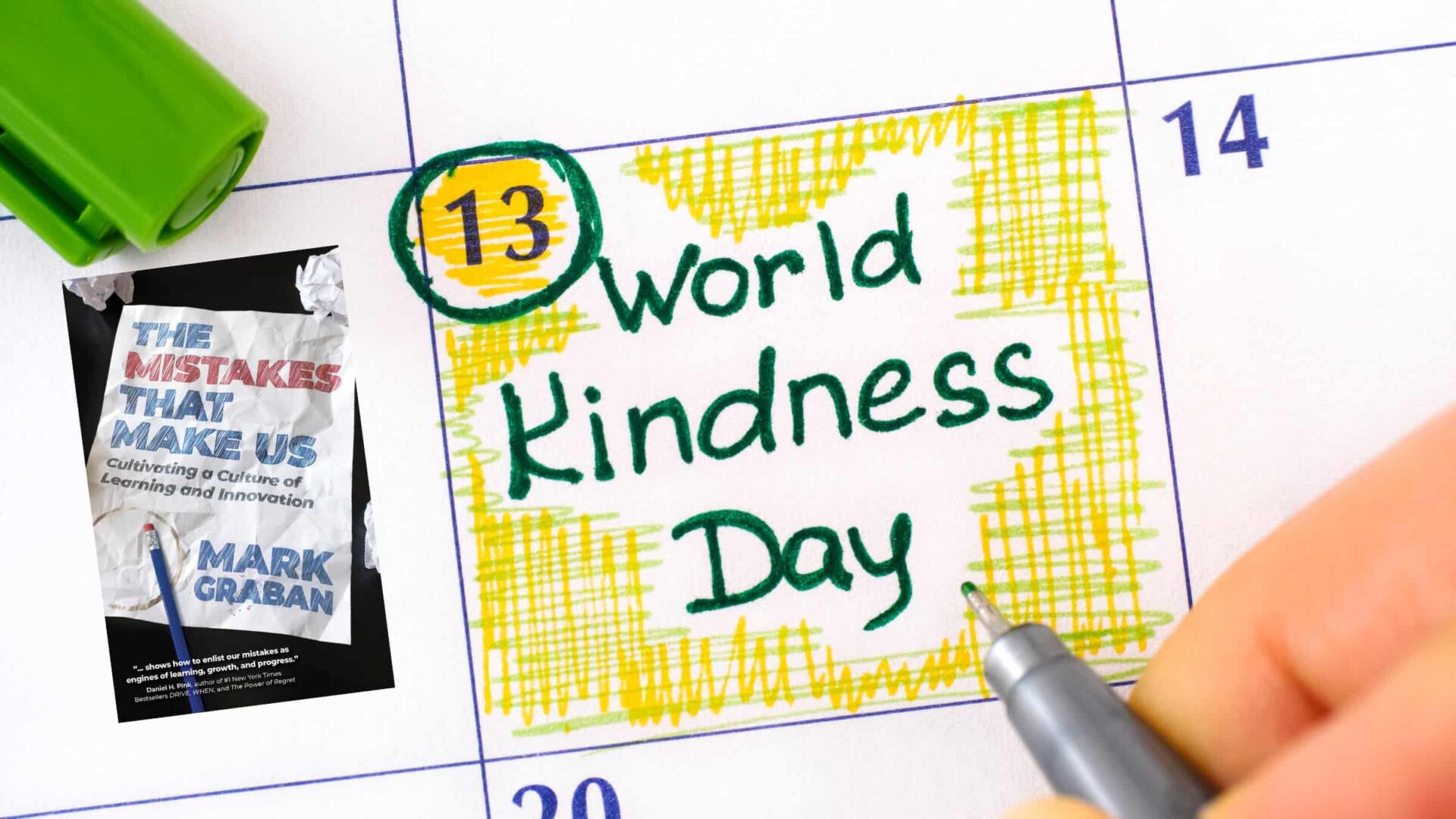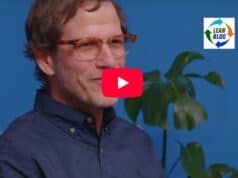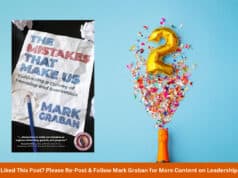tl;dr summary: Karyn Ross enlightened me about World Kindness Day and provided invaluable feedback on my book, The Mistakes That Make Us. Her insights particularly helped me replace the term “grace” with “kindness,” enhancing the book's inclusivity. She also helped me better distinguish between being “nice” and “kind.”
I wasn't at all surprised to learn about “World Kindness Day” from my good friend, Karyn Ross.
As she posted on LinkedIn, that day is today.

I wrote about kindness in my most recent book, The Mistakes That Make Us: Cultivating a Culture of Learning and Innovation.
And, not surprisingly, Karyn was incredibly helpful to me as I was writing. She gave me kind and constructive feedback. And she helped me better understand and articulate the difference between “nice” and “kind.”
Kind means sometimes challenging challenging others. And she challenged me on a word choice in my book as I was refining the draft version.
I was using the word “grace,” as in “being gracious” or “showing grace” to yourself or others when mistakes occur.
Hear Mark read this post — subscribe to Lean Blog Audio
Karyn pointed out that the word has religious origins and that some people might not appreciate that word. Karyn suggested that I could talk about kindness instead of grace. And that actually resonated more with me– and it seemed more inclusive to a wider range of people.
I'm thankful that Karyn was kind and helpful to me on that.
Below, you can find some excerpts from my book… and of course, I recommend Karyn's book The Kind Leader and a webinar that she did with me about that topic.
From The Mistakes That Make Us
The mistakes that make us embarrassed are, hopefully, made in a workplace that chooses kindness and learning instead of blame and punishment.
A culture of learning from mistakes is kind and constructive. It's more effective. It allows people to take an active role in preventing mistakes from being repeated. In doing so, they learn how to reduce the number made over time. They feel safer and more capable of driving improvement and innovation.
In truth, systemic factors cause most mistakes. If we attribute a mistake to simple human error, we wouldn't shrug it off and say, “Well, we're all human; we all make mistakes. What more can we do?” We do the right things. We don't punish. Instead, we choose to be kind and constructive. Actually, kindness is constructive, as discussed further in Chapter Three. We must learn from our mistakes and improve.
It's often difficult to admit mistakes to ourselves and in relatively low-risk settings with friends. We can work on that, starting with being kinder to ourselves. But it's easier to be more open about mistakes when we work for leaders who help us learn from mistakes, instead of punishing us for them.
“Being kind doesn't mean being soft or a wuss. Kindness is not a sign of weakness. It is a sign of confidence… Taking care of employees is perhaps the best form of kindness.”
— Colin Powell, United States Secretary of State and United States Army General (1937-2021)
“Kind” Is Better Than “Nice”
Most people want to be nice. A nice leader, however, might avoid conflict by ignoring a mistake, or they might say, “Don't feel bad; it's not your fault.” Nice might be a touch better than screaming at yourself or punishing others. But does niceness help us prevent mistakes and improve performance?
Karyn Ross, the founder of The Love and Kindness Project Foundation, co-authored The Toyota Way to Service Excellence and most recently wrote The Kind Leader.
Karyn defines kindness as “an action (or set of actions) connecting a person's internal feelings of empathy and compassion… that is undertaken to generate a positive effect and outcome for another,” and this also applies to yourself.
She emphasizes that kindness is helpful and effective. While niceness might include qualities like sympathy and politeness (or telling people what you think they want to hear), kindness is “focused on what will help the other person learn, grow, and improve.”
What is Karyn's advice for times when we make a mistake? “At that moment, when your inner voice starts [with] all those unkind things, step out for a moment and ask, ‘If this happened to someone else, my friend, and they came to me and told me this, what would I say to them?' Chances are, what you're saying to yourself is not what you would say to them out loud. We have to think kindly, speak kindly, and act kindly to others, but we must [do so] to ourselves as well.”
Karyn told me, “We learn self-kindness by practicing empathy, compassion, and taking kind actions for others. The best way to learn to be kind to yourself is to deliberately practice kindness to others!” She told me, “The people around us at home and work make mistakes all the time. We need not only to practice empathy and compassion but also to take action to help. Focusing on that teaches us to get out of ourselves and be kind to ourselves. We are just as imperfect.”
Karyn inspired me to create a coffee mug with four short mantras. I often drink coffee, especially when recording My Favorite Mistake episodes. The podcast logo faces the camera and my guest, but I see the side that reads:
- Be kind to yourself
- Nobody is perfect
- We all make mistakes
- Let's learn from our mistakes and help others do the same
The mug helps me remember these things I know to be true. I notice my mistakes, for sure. But I've gotten better at pointing out the fact of the mistake (which can be helpful) without shaming myself (which is unkind and unhelpful).
Be Kind and Constructive: One and the Same
Leaders can do better than being nice over and over again. Putting employees in a position to repeat mistakes isn't kind at all. Replacing punishment or niceness with rigorous improvement methods means we get to the root cause of a systemic mistake in ways that prevent it from being repeated–and that might be the ultimate act of kindness.
Karyn's Podcasts with Me
Please also check out the episode of “Lean Blog Interviews” when Karyn talked with me about her book:
And she was also a guest on “My Favorite Mistake.”

Final Thoughts
In conclusion, World Kindness Day serves as a poignant reminder of the profound difference between being “nice” and being “kind,” a distinction explored in my book, The Mistakes That Make Us.
The invaluable insights and suggestions from Karyn Ross, notably the emphasis on kindness over grace, have not only enriched the book but also underscored the importance of kindness in fostering a culture of learning and innovation.
Kindness, as we see, is not just a moral virtue but a practical tool in leadership and personal growth, guiding us to be more empathetic, compassionate, and effective in our approach toward mistakes – be it our own or others.
As we celebrate World Kindness Day, let's embrace the power of kindness to transform our workplaces, relationships, and personal lives, and remember that in the journey of improvement and learning, kindness is indeed our most reliable companion.
Oh, and here is a blog post I wrote about kindness and logical problem-solving back in 2021:
Please scroll down (or click) to post a comment. Connect with me on LinkedIn.
Let’s build a culture of continuous improvement and psychological safety—together. If you're a leader aiming for lasting change (not just more projects), I help organizations:
- Engage people at all levels in sustainable improvement
- Shift from fear of mistakes to learning from them
- Apply Lean thinking in practical, people-centered ways
Interested in coaching or a keynote talk? Let’s talk.
Join me for a Lean Healthcare Accelerator Trip to Japan! Learn More










Thank you so much Mark for sharing this post and spreading kindness! I love all of it…and particularly this:
“Kindness, as we see, is not just a moral virtue but a practical tool in leadership and personal growth, guiding us to be more empathetic, compassionate, and effective in our approach towards mistakes – be it our own or others.
As we celebrate World Kindness Day, let’s embrace the power of kindness to transform our workplaces, relationships, and personal lives, and remember that in the journey of improvement and learning, kindness is indeed our most reliable companion.”
We can all practice kindness by acting, reacting, speaking and thinking kindly. And when we do, every day will be World Kindness Day!
Comments are closed.